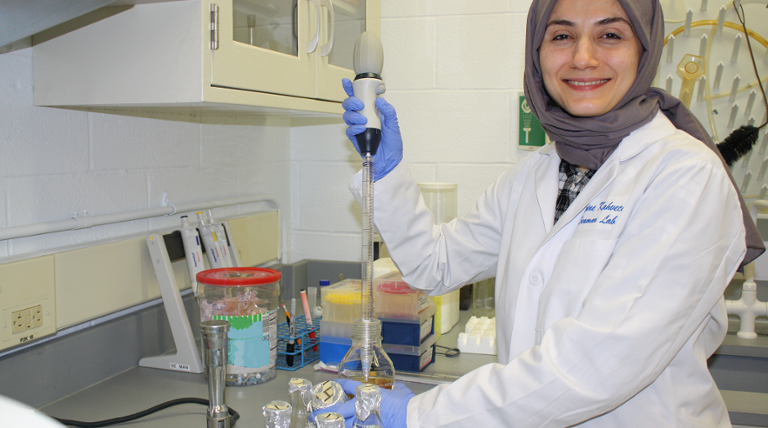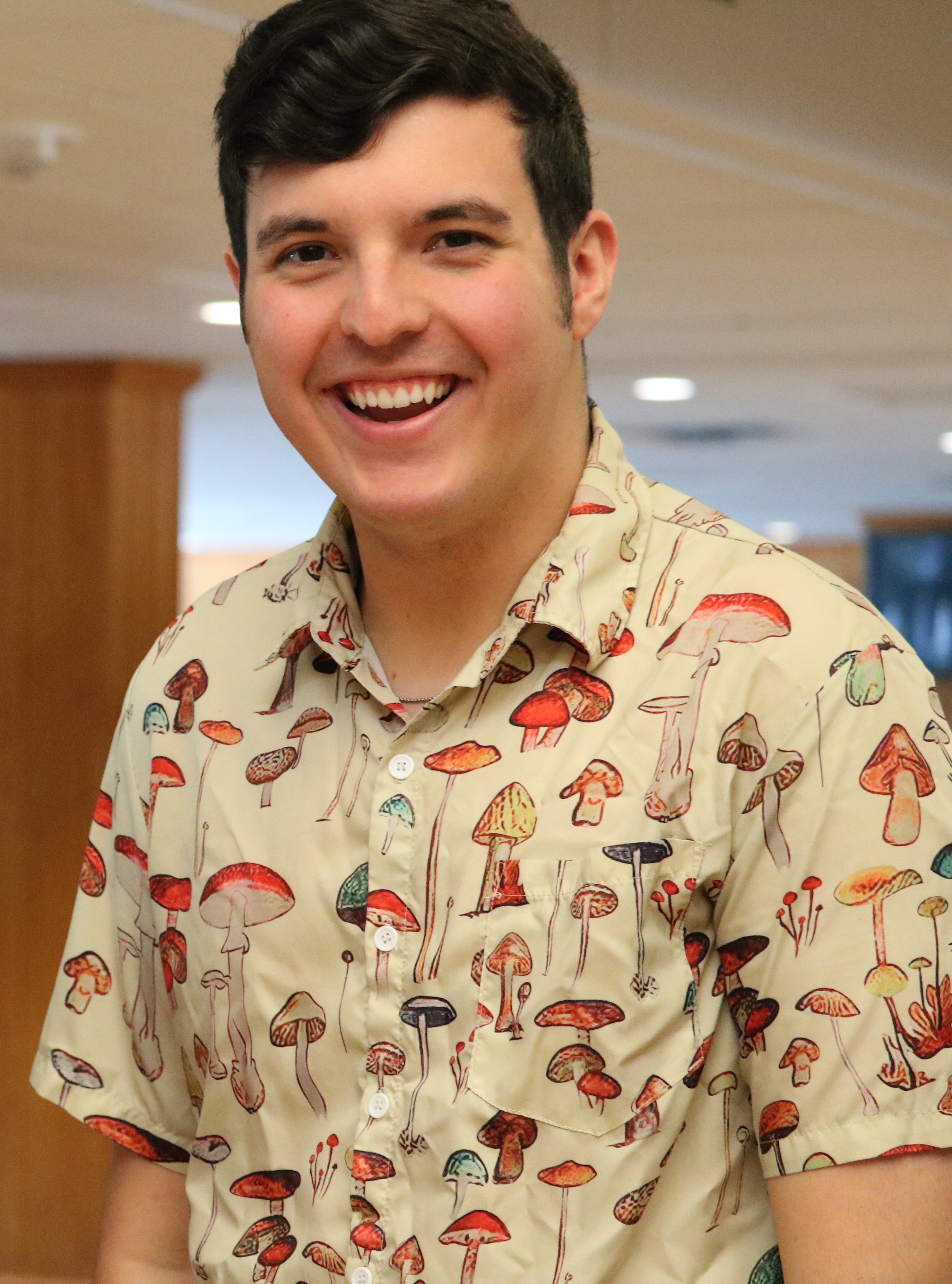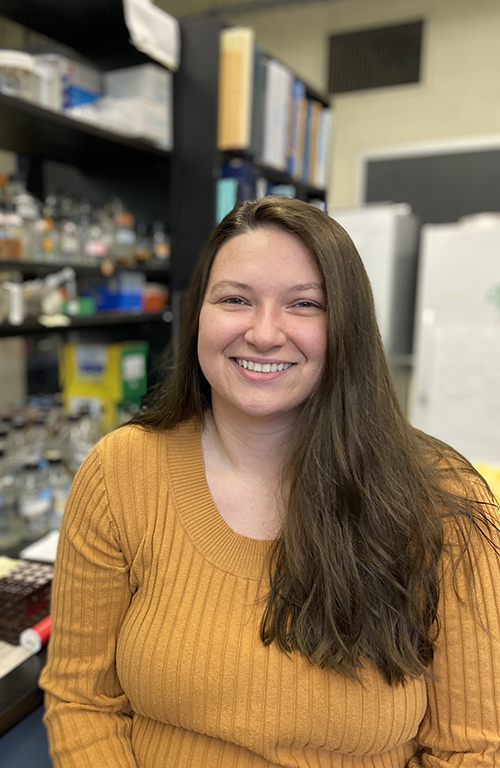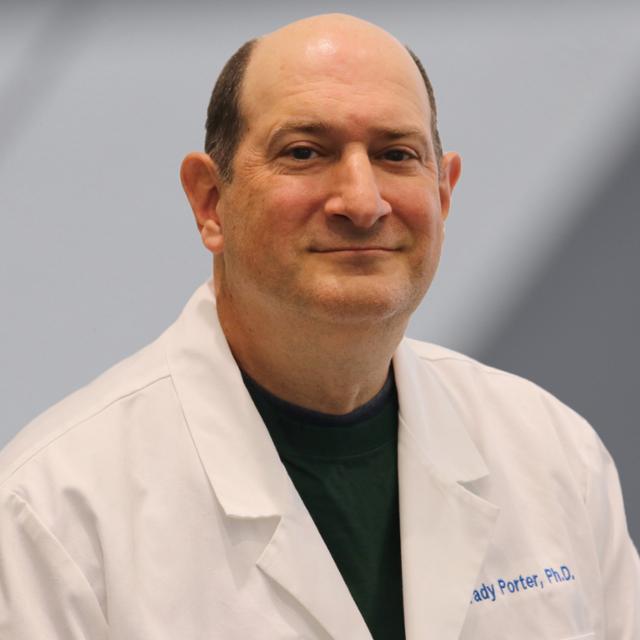Biological Sciences
We prioritize your growth and success as a researcher. We understand that each student has unique interests and ambitions, which is why we offer a diverse range of disciplines to specialize in. Our Ph.D. program revolves around fostering novel research that significantly contributes to the state of knowledge in your chosen field. The recognition of your accomplishment will be the publication of your research in peer-reviewed journals, presenting your findings at prestigious national or international meetings, and writing and defending your dissertation.
To ensure your success, we prioritize one-on-one faculty mentorship and personalized attention for your research. We want you to thrive and make the most of your time in our program, so we also encourage you to build a strong network within your peer group. With around 30 graduate students in the department, you'll have ample opportunities to forge lasting connections, develop friendships, and foster valuable collaborations.
Our graduate program is about more than just acquiring knowledge—it's about growing both professionally and personally, and contributing to the scientific community. We're excited to see the contributions that you'll make.
At Duquesne, our Biological Sciences Ph.D. program has a track record of graduating students that successfully obtain post-doctoral positions in prestigious institutions, or faculty positions at other colleges and universities. Below is information about the program and how to apply.
Application fee waivers are available for the Biology PhD application. Please contact Tiffany%20Kells to obtain a waiver code before you begin your Graduate CAS application.
Program Information
The Ph.D. in Biological Sciences at Duquesne University is a prestigious program designed to provide advanced training and research opportunities in various specialized fields within the realm of life sciences.
Degree
Doctorate
Academic Department
Biological Sciences
Required Credit Hours
30 credit hours
Alumni and Student Testimonials
Program Overview
Curriculum Overview
The graduate program in biological sciences is designed to help you to succeed as a researcher.
Year One (1): In the first year, you'll engage in advanced coursework, including Advanced Cell and Molecular Biology I and II, Introduction to Graduate Research I and II, and seminars. You will participate in two 10-week rotations, one in the fall and one in the spring semester, in research labs of your choice. There's a possibility of a third rotation in the summer.
At the culmination of your first year, you'll complete Step 1 of your Qualifying Exams. You'll receive several potential grant topics and prepare and defend a small grant proposal on the topic you choose.
Year Two (2): Moving on to the second year, you'll commit to one research lab, and continue to tailor your education in consultation with your advisor and Dissertation Committee. Additional elective courses will be selected based on your research interests. During this time, you'll develop your Dissertation Proposal, an essential milestone captured in Step 2 of your Qualifying Exam. Your proposal, written in the style of a small grant, will cover background and significance, specific aims, experimental approach, and a timeline for completion. Presenting this proposal to the department as a seminar and defending it in front of your Dissertation Committee will demonstrate your competence in your chosen area of research.
Upon the successful completion of Step 2 of the Qualifying Exam, you'll advance to candidacy for the Ph.D. degree. The remaining years of your Ph.D. will be dedicated to conducting your proposed research, honing your experimental techniques, and showcasing your findings through conference presentations and peer-reviewed publications. To ensure you stay on track and receive the support you need, annual Dissertation Committee meetings will be held to assess your progress and address any concerns that may arise.
Successful Applicants
We evaluate each application as a whole, acknowledging the full spectrum of your education, research experience, and other valuable experiences that are predictors of your success in graduate school. As you consider joining us, it's helpful to know that our admitted students usually possess the following:
- A bachelor's degree in one of the biological disciplines such as biology, biochemistry, physiology, ecology, microbiology, environmental biology, virology or other related field.
- Courses in cell and molecular biology. This foundational knowledge will play a crucial role in helping you to prepare for the PhD Qualifying Exam, which heavily draws upon the principles covered in the Advanced Cell and Molecular Biology course during your first year.
- Courses in upper-level (junior and senior) biological discipline subjects.
- Courses in chemistry, organic chemistry, and math (including calculus and biostatistics). These subjects enrich your toolkit as a researcher and contribute to a comprehensive understanding of biological phenomena.
- A GPA (based on a 4.0 scale) of 3.25 or better in the sciences. In considering your application, we take into account your other academic achievements, such as undergraduate research experiences, recognizing that the GPA is just one aspect of your potential.
Your unique combination of education, research experience, and other life experiences make you a promising candidate for our program. We celebrate the individuality and diverse strengths of each applicant, and we are eager to discover how you will contribute to the vibrant academic community within our Biological Sciences PhD program.
Applying to the Program
We admit students one time per year, and are currently accepting applications for admittance beginning the following August. The application deadline is December 15th, so mark your calendar to seize this incredible chance.
To start your application, click on the link provided, and it will lead you to the Graduate Admissions portal, where you can submit your application materials as follows,
-
A General Information form, completed online, allowing us to understand your background and unique qualities.
-
Transcripts from all the colleges and universities you've attended will provide us with a comprehensive view of your academic history.
-
A CV or resume for you to showcase your extracurricular achievements and experiences.
-
A personal statement. Your statement will tell us why you're driven to pursue graduate school, share your future plans for your PhD degree, and explain why you've chosen to apply specifically to the Duquesne Biological Sciences Department. Your passion and vision matter to us.
-
Contact information for three individuals who will write your letters of recommendation is a crucial part of the application. Their insights into your preparedness for graduate school, academic achievements, research experience, work ethic, and other attributes relevant to success will be valuable to our selection process.
It is important to note that GRE Exam scores are NOT required.
TOEFL – All instruction in the program is in English. While a TOEFL score is not required, demonstration of English competency is required. This can include an undergraduate degree from an institution that teaches in English, a TOEFL score, or a Test of Spoken English score. For PhD students receiving a Teaching Assistantship, all foreign students must complete a university administered oral test in English to be certified to teach undergraduates at Duquesne University.
Financial Support for PhD Students
As a Biology Ph.D. student, you'll receive comprehensive financial support to ensure you can focus on your research. Our financial support includes:
-
Assistantships: All students receive support in the form of a Teaching Assistantship (TA) or a Research Assistantship (RA) in addition to a tuition waver.
-
Stipend: Currently set at $28,000 per year (2023-24).
-
Additional Benefits: In addition to the stipend, we offer subsidies for health insurance and parking permits.
-
Duration of Support: Students in good standing typically receive financial support for five years, and you can also apply for one year of additional support. While we provide generous support, please note that funding beyond six years is highly unlikely.
Research assistantships (RA) are offered by labs that have external grant support that includes RA funding. More senior graduate students may apply for the prestigious Bayer Fellowship, a competitive RA stipend that recognizes exceptional accomplishments in the field.
Teaching Assistants (TA): As a Teaching Assistant, you'll play a pivotal role in supporting undergraduate education. This includes responsibilities such as managing laboratory sections, presenting pre-lab instructions, supervising lab activities, creating test materials, and conducting examinations. You'll be under the guidance of the faculty member leading the course, ensuring you gain valuable teaching experience.
Biological Sciences Graduate Program Alumni
The Biological Sciences Ph.D. program has a track record of graduating students that successfully obtain postdoctoral positions in prestigious institutions, or faculty positions at other colleges and universities. Some recent alumni include,
William King, class of 2023. Will is now a Postdoctoral Researcher at Stanford University in California, where he studies the biochemistry of cell signaling. Will did his dissertation research in Dr. Jana Patton-Vogt's lab. His dissertation research has been published in several leading journals, such as the Journal of Biological Chemistry and FASEB journal.
Brooke Deal, class of 2023. Brooke is a Postdoctoral Researcher and Research and Development Scientist at the Children's Hospital of Philadelphia, where she studies the efficacy of preclinical therapeutics. Brooke did her dissertation research in the lab of Dr. John Pollock on sex differences in the response to neuroinflammation and nano-medicines. Brooke has several publications in prestigious journals such as the International Journal of Molecular Sciences.
David Macar, class of 2023. David is now an Assistant Professor of Biology at Ohio Northern University in Ada, Ohio. David carried out his dissertation research in Dr. Phillip Auron's lab. David's dissertation research on the transcriptional regulation of various health and disease-related genes, was published in several key medical journals such as Cancers and the Journal of Bone and Mineral Research.
Our PhD Program encompasses an exceptional team of research-active faculty. It is
important to note that not every faculty member accepts graduate students every year.
If you are specifically interested in one lab, please email the faculty member directly
to inquire about their availability for the current year.Recent Student Publications
Research Faculty
Learning Outcomes
Questions? Contact Us!

















